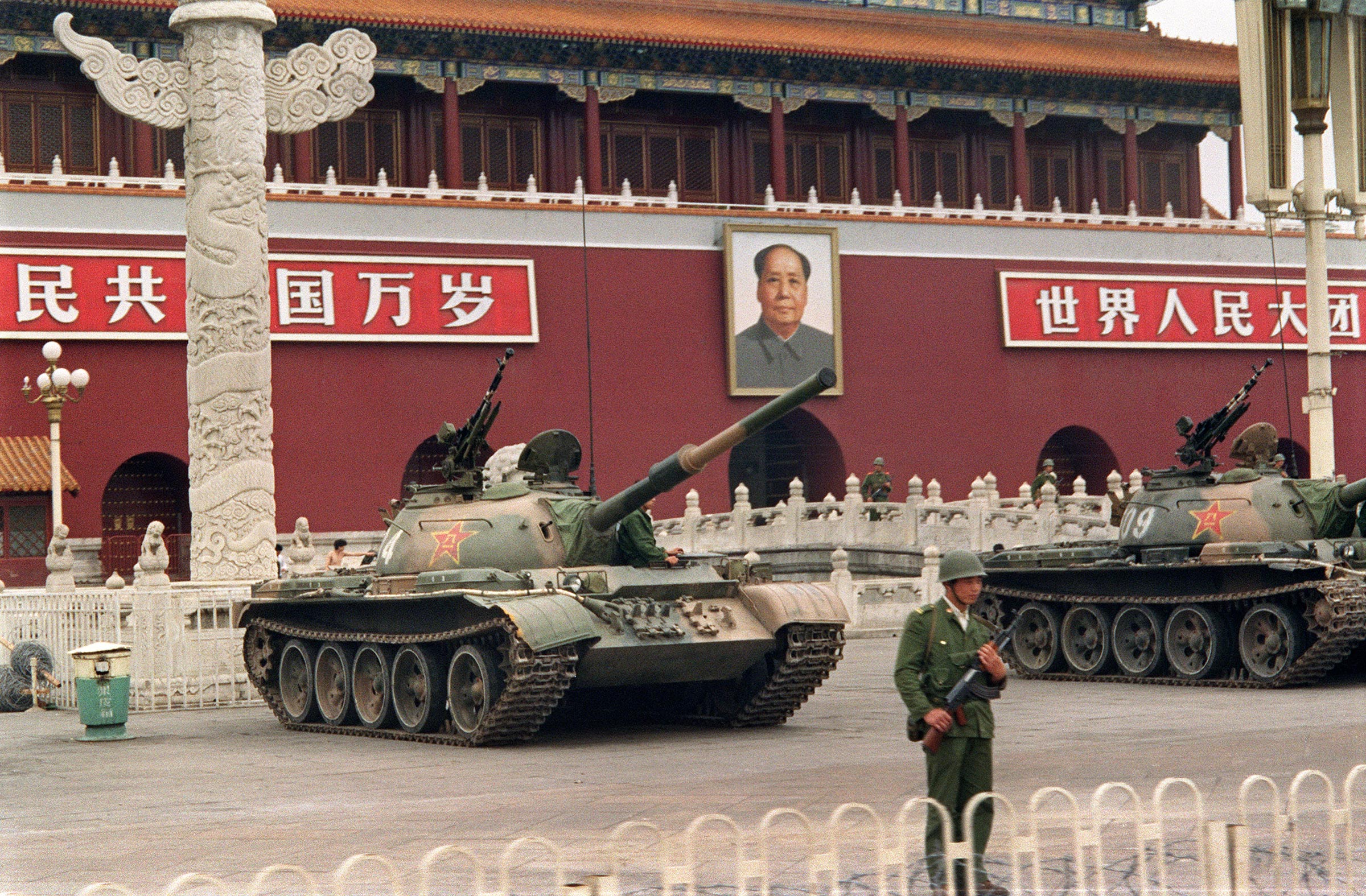Tiananmen Square massacre: China is erasing history of its most shameful day
Today marks one of the most shameful days in China’s history, but this week’s bizarre act shows Beijing will no longer tolerate it. There will be an eerie silence at Hong Kong’s Victoria Park tonight, where tens of thousands of protesters gather each year to remember those killed in one of the most shameful events in China’s history — the Tiananmen Square Massacre.
One hundred eighty thousand people attended the annual vigil just two years ago, remembering the 1989 bloodbath that shocked the world. But anyone who dares show their face at the site today will face up to five years in prison.
Even talking about the event could lead to one year in jail under Hong Kong’s harsh National Security law — brought in last year despite massive pro-democracy protests.
It all has nothing to do with Covid-19 either. The city has managed the pandemic well, there have been no cases in over a month, and social distancing rules have been eased.
Instead of the traditional scenes of Hong Kongers coming together and holding candles to remember those who died 32 years ago, there will be a brute show force.
Thousands of police will stand at Victoria Park in a show of force that clarifies that China will no longer tolerate discussion of the massacre.

In a sign of how seriously it is taking this year’s protests, police in Hong Kong bizarrely arrested an activist known as “Grandma Wong” over the weekend.
The 65-year-old’s alleged crime was holding an “unauthorized assembly” — even though she was sitting alone on the footpath carrying a yellow umbrella and a homemade cardboard sign.
Another nearby protester was fined for handing out electric candles and matchboxes marked “Never surrender” to celebrate the event. In Macau, police also banned the vigil for the second time. Last year authorities blamed covid. But this year, they claim the event’s purpose and slogans would violate local criminal laws, including inciting subversion and defamation.
Discussion about the infamous massacre of largely unarmed protesters on June 4, 1989 — particularly Beijing’s decision to use tanks and troops against them — is forbidden on the mainland.
The massacre was precipitated by the peaceful gatherings of students, workers, and others in Beijing’s Tiananmen Square and other Chinese cities in April 1989.
They called for freedom of expression, accountability, and an end to corruption.
The government responded to the intensifying protests in late May 1989 by declaring martial law.
On June 3 and 4, the military opened fire and killed many peaceful protesters and bystanders. In Beijing, some citizens attacked army convoys and burned vehicles in response to the military’s violence.
The Chinese Communist Party (CCP) has since forbidden discussion of the massacre and has taken extreme measures to block or censor related information.
Simply put, the words Tiananmen Square must not be said in China. Any published articles must be consistent with the government’s version of events. Internet searches made within the nation return censored results.



